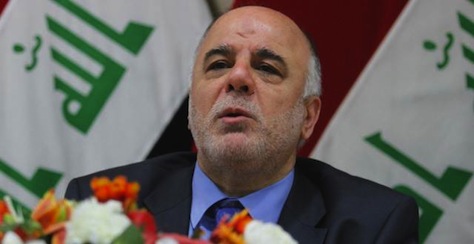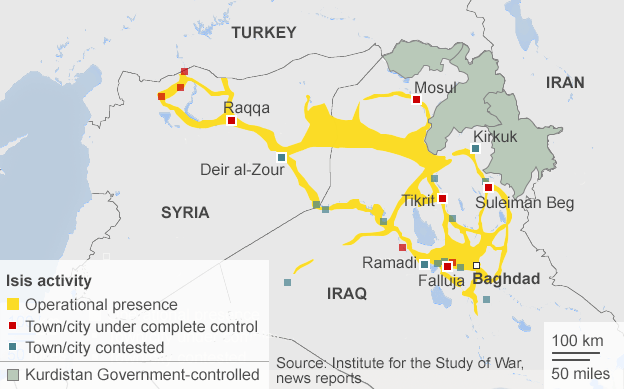 Photo credit to Brendan Smialowski/AFP/Getty Images.
Photo credit to Brendan Smialowski/AFP/Getty Images.
Guest post by Christopher Skutnik
Most of the public blowback within the US policy debate over Syria’s civil war revolves around who, among the confusing mishmash of anti-Assad rebels, Western governments might possibly aid in the conflict. ![]()
![]()
![]()
Even as the body count climbed and the war crimes mounted, much of the West declared a policy of non-interference. The inability to find a suitable Western-friendly champion is key among the factors that have most restrained the foreign response to Syria, even as US president Barack Obama yesterday ordered the first airstrikes against Islamic State group (الدولة الإسلامية) after six weeks of strikes meant to subdue them in northern Iraq.
In 2011, the US Congress introduced a bill placing sanctions on actors committing human rights abuses in Syria, and which simultaneously and explicitly prevented US president Barack Obama from declaring war or otherwise using force against the Syrian regime. Later in 2012, Congress introduced another bill that began exploring ways to ‘…deny or significantly degrade the ability of [Syrian president] Bashar al-Assad…to use air power against civilians and opposition groups in Syria….’
Like the one before it, this bill also maintained that ‘the United States ground troops [shall] not be deployed onto Syrian territory.’
* * * * *
RELATED: Five thoughts on Obama’s ISIS announcement
* * * * *
The United States was not alone in its reticence. In August 2013, the United Kingdom’s parliament famously voted 285 to 272 against prime minister David Cameron’s push for a British role in any potential American military action against Syria.
This proved to be a ‘two-fer.’ Not only were the British now going to stay out of Syria, but without the legitimacy of multilateralism, Obama was forced to withdraw to the principles that got him elected five years earlier. Aimed at a different war in a different country, Obama famously argued that the US war and occupation in Iraq that began in 2003 was ‘ill-considered’ and ‘unnecessary,’ and was steadfastly preempting political opponents of a possible response to Syria by proclaiming a ‘no boots on the ground’ policy.
In doing so, the leader of the strongest liberal democracy in the world was leaving the victims of sarin gas attacks; the moderate, if nebulous, Free Syrian Army (FSA, الجيش السوري الحر); and the innocents on the periphery stuck between a vice grip of growing religious extremism and a government prone to attacking villages with helicopter gunships.
Fast forward to 2014.
Continue reading Kurdish opportunity rises as US airstrikes hit Syria


